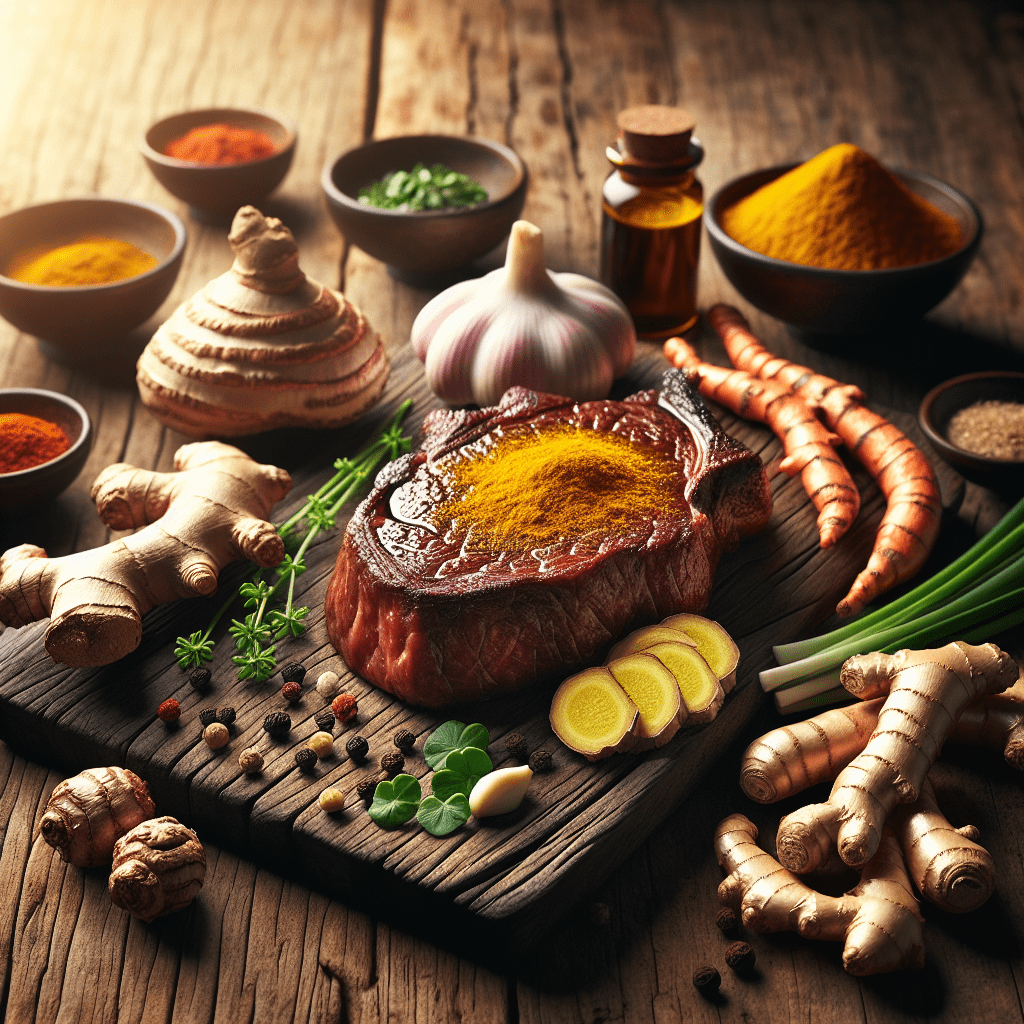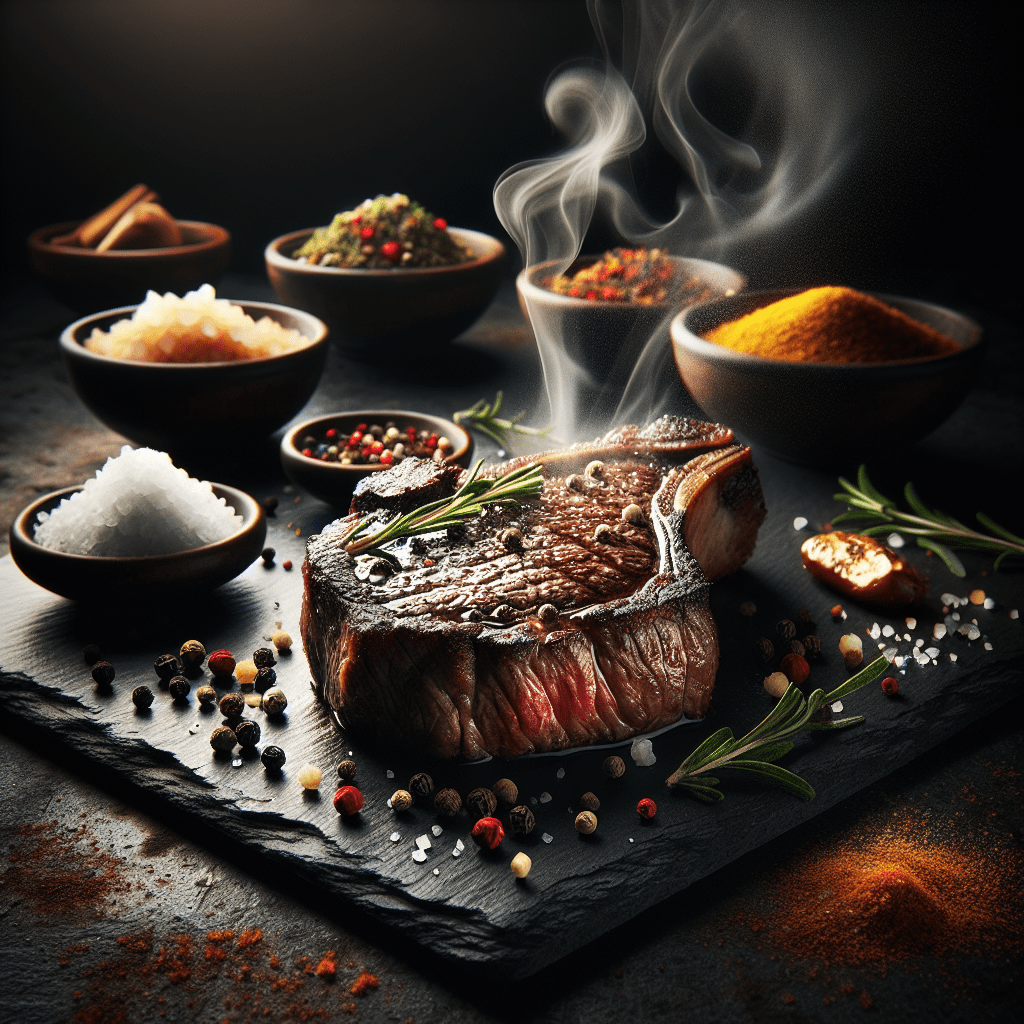Are you tired of the same old plain steak day after day on your carnivore diet? You’re not alone! As more health enthusiasts embrace this meat-centric eating approach, many find themselves stuck in a flavor rut. But what if I told you that Eastern medicine holds the key to transforming your carnivore meals from mundane to magnificent?
The carnivore diet—focusing primarily on animal products—has gained tremendous popularity for its potential health benefits. Yet without proper seasoning knowledge, this way of eating can quickly become bland and uninspiring. That’s where the ancient wisdom of Eastern medicine steps in, offering a treasure trove of seasoning approaches that not only enhance flavor but also boost the healing potential of your meals.
Eastern medicine has always viewed food as more than just sustenance—it’s medicine for the body and soul. By incorporating this philosophy into your carnivore lifestyle, you can create a dining experience that delights your taste buds while supporting your overall wellness journey.
Eastern Medicine’s Approach to Food: Balance and Harmony
Eastern medical traditions dating back thousands of years emphasize the importance of balance in all aspects of life, including our meals. Unlike Western approaches that often focus solely on nutritional content, Eastern medicine considers how foods affect our energy, harmony, and overall constitution.
At the core of this philosophy is the concept of the Five Flavor Profiles, a fundamental principle that can revolutionize your carnivore diet experience. These five tastes—salty, sour, bitter, sweet, and umami (savory)—each serve specific purposes in creating balance within the body.
“In Eastern medicine, we don’t just eat for calories or macronutrients. We eat to create harmony within our bodies,” explains Dr. Lin Chen, an Eastern medicine practitioner. “Each flavor corresponds to specific organs and energy systems, so incorporating a thoughtful balance of seasonings can support different aspects of health.”
This principle aligns perfectly with the philosophy behind HerbalsZen, where traditional Eastern wisdom meets modern health practices. Just as HerbalsZen’s EASTCHI AI analyzes constitutional types through Five Element Theory, you can apply similar principles to your carnivore diet by selecting seasonings that complement your body’s unique needs.
For carnivore dieters, this means moving beyond just salt and pepper. By thoughtfully incorporating seasonings for carnivore diet that represent different flavor profiles, you can create meals that are not only more enjoyable but also more beneficial for your specific health goals.
Seasonings For Carnivore Diet: Eastern-Inspired Options
Now, let’s explore specific seasonings suitable for a carnivore diet that draw from Eastern medicine principles. These options enhance flavor while offering potential health benefits—truly embracing the “food as medicine” concept central to Eastern healing traditions.
Natural Salts
Natural, unprocessed salts are foundational seasonings for carnivore diet enthusiasts, and Eastern medicine has long recognized their importance beyond mere flavor enhancement:
Himalayan Pink Salt: Rich in trace minerals, this salt not only seasons your meat but also helps balance electrolytes—crucial for carnivore dieters who often experience increased mineral needs during the adaptation phase. In Eastern medicine, high-quality salt is considered supportive of kidney function and water balance.
Celtic Sea Salt: With its mineral-rich profile, Celtic sea salt provides a different flavor dimension while supplying various trace elements that support overall vitality—a concept known as “qi” in Eastern medicine.
Black Salt (Kala Namak): Used in Ayurvedic medicine (an Eastern healing tradition), this sulfur-containing salt adds a unique flavor dimension to eggs and can aid digestion—a common concern for those new to the carnivore diet.
Warming Spices
Several warming spices align with both carnivore diet principles and Eastern medicine practices:
Black Pepper: Beyond adding a pleasant heat, black pepper enhances the bioavailability of nutrients in your meat. Eastern medicine values black pepper for its warming properties that support digestion and circulation.
Cumin: With its earthy flavor profile, cumin complements beef and lamb perfectly. In Eastern traditions, cumin is praised for its ability to strengthen digestive fire and reduce bloating—helpful for carnivore dieters transitioning from other eating patterns.
Cinnamon: While typically associated with sweet dishes, a touch of cinnamon can enhance the natural sweetness of certain meats like lamb. Eastern practitioners use cinnamon to warm the body and support balanced blood sugar.
One carnivore dieter shared: “Adding warming spices like black pepper and cumin completely transformed my experience. Not only do my meals taste better, but I’ve noticed improved digestion compared to when I ate completely plain meat.”
Herbal Infusions
Herbs play a special role in both seasoning meat and providing gentle medicinal benefits:
Rosemary: This aromatic herb pairs beautifully with beef and lamb while offering antioxidant properties. In Eastern herbalism, rosemary is believed to stimulate circulation and support brain function.
Thyme: With its subtle earthy notes, thyme enhances the natural flavors of meat while providing antimicrobial benefits. Eastern traditions value thyme for respiratory support and digestive harmony.
Sage: This herb’s distinctive flavor works wonderfully with fattier cuts of meat. Eastern medicine recognizes sage for its ability to support digestion of rich foods and balance excessive dampness in the body.
When using herbs on the carnivore diet, focus on small amounts used primarily as seasonings rather than consuming large quantities of the plant material itself. This approach honors both the principles of the carnivore diet and the Eastern concept of using plants as medicinal adjuncts.
Umami Enhancers
The umami flavor profile—deeply savory and satisfying—is naturally present in meat but can be further enhanced:
Bone Broth: While technically a cooking medium rather than a seasoning, bone broth infuses meat with additional minerals and amino acids. Eastern medicine has used bone broth for centuries to strengthen the digestive system and support joint health.
Fish Sauce: Used sparingly, traditional fish sauce (check for pure versions without plant additives) adds tremendous depth to meat dishes. In Eastern cuisines, properly fermented fish sauce is valued for its digestive benefits.
Dried Mushroom Powder: Some carnivore dieters who tolerate fungi include small amounts of dried mushroom powder as a seasoning. Medicinal mushrooms have a long history in Eastern healing traditions for immune support.
Balancing Seasonings Based on Individual Needs
Eastern medicine emphasizes that no single approach works for everyone—personalization is key. This principle aligns perfectly with customizing seasonings for carnivore diet based on your unique constitution and health goals.
Constitutional Considerations
In Eastern medicine, people are categorized by their constitutional types, similar to how HerbalsZen’s EASTCHI AI analyzes users through Five Element Theory. Your constitution might influence which seasonings serve you best:
Heat-dominant constitutions: If you tend to run hot, experience inflammation, or have skin reactions, emphasize cooling seasonings like small amounts of fresh herbs rather than hot spices.
Cold-dominant constitutions: If you feel cold easily or have sluggish digestion, warming spices like black pepper, cumin, and cinnamon may better support your system.
Dampness tendencies: For those with signs of dampness (feeling heavy, foggy thinking), drying herbs like sage and rosemary might be beneficial when seasoning your meat.
Seasonal Adjustments
Eastern medicine places great emphasis on eating in harmony with the seasons, another principle shared by HerbalsZen’s approach:
Winter: Emphasize warming spices like cinnamon, clove, and black pepper to support the body’s need for internal warmth.
Spring: Incorporate slightly bitter herbs like thyme and rosemary that support the liver’s natural detoxification processes.
Summer: Lighter seasonings with cooling properties help balance the season’s heat.
Fall: Grounding spices like cumin and sage help prepare the body for the transition to colder months.
“Adjusting your seasonings seasonally is a subtle but powerful way to stay aligned with nature’s rhythms,” notes nutritionist Sara Lee, who specializes in Eastern-influenced dietary approaches. “Even within a carnivore framework, these small adjustments can make a significant difference in how you feel.”
Moderating Intensity
While exploring seasonings for carnivore diet, remember that Eastern medicine values moderation in all things:
- Start with small amounts of new seasonings to observe how your body responds
- Focus on quality over quantity when selecting spices and herbs
- Rotate different seasonings rather than using the same ones constantly
- Consider your activity level and health status when choosing intensity levels
A thoughtful approach to seasoning supports the carnivore diet’s potential anti-inflammatory benefits while enhancing the dining experience. As one long-term carnivore dieter explains: “I noticed that certain spices would trigger old symptoms if I used too much. By being mindful of which seasonings I use and how much, I’ve found my personal sweet spot that keeps meals interesting without compromising how great I feel.”
Practical Application: Creating Balanced Carnivore Meals
Putting these principles into practice transforms the carnivore diet from a restrictive approach to a nuanced culinary tradition. Here’s how to apply Eastern medicine wisdom to your meat-based meals:
Start with high-quality base ingredients: Eastern medicine emphasizes that no amount of seasoning can compensate for poor-quality foundations. Choose the best meat you can access.
Consider cooking methods: Different cooking approaches—grilling, slow-cooking, braising—extract different properties from both the meat and the seasonings.
Create seasoning blends based on constitution: Develop personal spice blends that support your unique body type and current health status.
Practice mindful eating: Eastern traditions emphasize being present during meals. Notice how different seasonings affect not just taste but your overall feeling after eating.
Listen to your body’s feedback: The ultimate guide for which seasonings for carnivore diet work best for you is your own body’s response.
This approach mirrors the philosophy behind HerbalsZen’s EASTCHI AI, which delivers customized nutrition plans based on Eastern medical theories. Just as this system analyzes individual needs, you too can develop a personalized approach to seasoning your carnivore meals.
The Transformative Power of Eastern-Inspired Seasonings
By incorporating Eastern medicine principles into your carnivore diet through thoughtful seasoning choices, you create a bridge between ancient wisdom and modern dietary approaches. This integration offers several profound benefits:
Enhanced Enjoyment: Sustainability in any dietary approach depends largely on enjoyment. Eastern-inspired seasonings transform potentially monotonous meat-based meals into a diverse culinary experience.
Personalized Nutrition: The Eastern approach to seasonings acknowledges individual differences, allowing you to tailor your carnivore diet to your specific body type and health needs.
Holistic Health Support: Beyond mere flavor, these seasonings can address various aspects of wellbeing—from digestion to circulation to emotional balance.
Cultural Connection: Exploring traditional seasoning approaches connects you to ancient wisdom and the rich cultural heritage of Eastern healing traditions.
For the health-conscious individual seeking natural, holistic approaches to wellness—exactly the type of person drawn to HerbalsZen’s philosophy—this marriage of carnivore principles with Eastern seasoning wisdom offers a powerful path forward.
As you continue your carnivore journey, remember that food is more than fuel—it’s information for your body, medicine for your cells, and nourishment for your spirit. By embracing the sophisticated approach to seasonings that Eastern medicine provides, your carnivore diet becomes not just a way of eating but a comprehensive approach to vibrant health.
The next time you prepare your meat-based meal, take a moment to consider not just what you’re eating, but how you’re seasoning it. With the right seasonings for carnivore diet inspired by Eastern medicine principles, you’ll transform your dining experience from bland to truly grand—one flavorful bite at a time.
Ready to explore the world of Eastern-inspired seasonings? Start with just one or two new options from this guide and notice how they transform both the flavor of your meals and how you feel after eating. Your carnivore journey is about to become a lot more flavorful!



